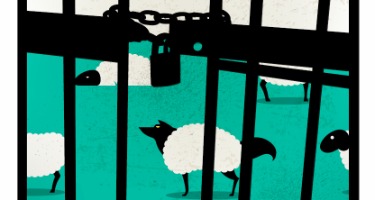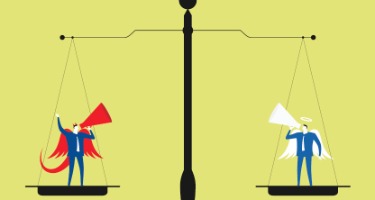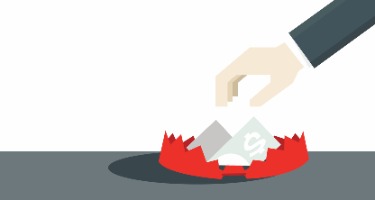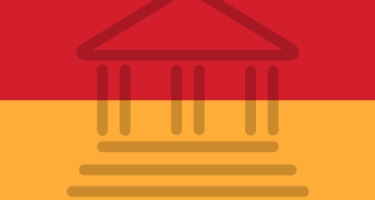After the crash of 1929 that helped touch off the Great Depression, the Congressional Pecora investigation brought bankers and Wall Street figures under a harsh national spotlight. The probe, named for the Senate’s chief investigator, helped galvanize public support for tough new restrictions on Wall Street, which eventually took the form of the Glass–Steagall Act (separating commercial and investment banks) and the establishment of the Securities and Exchange Commission.
There was no such similar singular prism for focusing the backlash this time, but eight years after the most recent global financial crisis, the reckoning continues.
Congress’ main reaction to this latest financial upheaval, the Dodd–Frank Wall Street Reform and Consumer Protection Act, popularly known as Dodd–Frank, continues to reshape the financial sector. It has altered incentives for financial firms; regulated derivative investments, hedge funds, and credit-rating agencies; and forced banks to increase their capital reserves. Perhaps most importantly is that it also spawned a powerful new beat cop: the Consumer Financial Protection Bureau (CFPB).
Among the seismic effects seen in the immediate aftermath of these changes in the regulatory environment was General Electric’s decision to sell off its giant capital division. More recently, the U.S. government went after Germany’s largest bank, Deutsche Bank, seeking billions in penalties for alleged improprieties in the American mortgage business. Wells Fargo also faced furious and sustained reactions in response to the news that thousands of its employees opened phantom accounts in unsuspecting customers’ names. After he was publicly lambasted by Massachusetts Senator Elizabeth Warren, a chief architect of the CFPB, Wells Fargo’s CEO was forced to step down. Much of the public anger was stoked
by the fact that the federal government failed to bring cases against some of the perceived culprits of the financial crisis. While the public might clamor for someone in a highly visible position in the finance industry to pay, proving a case is entirely another matter.
“The question has been raised, ‘Why didn’t the Justice Department or the SEC penalize upper management for these cases?’” says former SEC Chairman David Ruder, the former dean and now an emeritus professor at Northwestern University’s Pritzker School of Law. “But it’s a very difficult proof problem. In criminal cases, you have to prove criminal intent. In SEC cases, there’s also a very high bar. You have to prove recklessness and intent to deceive or defraud.”
Far-Reaching Legislation
Dodd–Frank is a sprawling, complicated piece of legislation. “With Dodd–Frank, we began to unrig the game,” Elizabeth Warren once observed. But it has also led to several anomalies. Originally passed with the objective, in part, to rein in the largest financial institutions, many have instead grown larger under the legislation. Intended to help consumers—and it has, in several important ways—it has also prompted more restrictive lending practices.
“I think Dodd–Frank substantially changed the regulatory landscape because it enlarged the perimeter of regulation,” says Gaurav Vasisht, a former executive deputy superintendant of the New York State Department of Financial Services and now director of the financial regulation program at the Volker Alliance, a group that supports vigorous financial regulations advocated by former Federal Reserve Chair Paul Volcker.
But he also notes that the various federal agencies responsible for financial regulation have been slow to write the rules implementing the legislation. “One problem is that we have a really byzantine financial regulatory system. And we don’t have all the right tools to deal with the risks in the system,” he says.
Since the first day of its passage—in fact, even while it was under discussion in Congress—Dodd–Frank has been highly controversial in some quarters. Financial firms went to federal court to challenge its unusual structure as an independent agency with a single executive leader. In October, a federal court in Washington agreed.
Meanwhile, the Republican-led House Finance Committee even proposed legislation (the Financial CHOICE Act) that would essentially gut the law. Those efforts are now likely to have renewed momentum under the new Trump administration.
“Various federal agencies responsible for financial regulation have been slow to write the rules implementing the legislation.”
Wells Fargo Under the Gun
At first, Wells Fargo emerged from the financial crisis in good shape, at least relative to other large American financial institutions. It didn’t engage in many of the riskiest mortgage practices that were the undoing of some of its largest competitors. And for years it maintained its reputation as a solid, conservatively run bank.
But that all came crashing down as news began to emerge about two million fee-generating accounts opened without customer knowledge or approval, a result of aggressive internal incentive bonus programs. The news just kept getting worse, as the public learned that early whistleblowers had been ignored and even fired.
The bank ultimately dismissed more than five thousand employees and has been spending millions of dollars on a nationwide media campaign designed to restore its reputation with customers and regulators. And it’s possible, perhaps even likely, that none of this would have happened without the CFPB playing its aggressive watchdog role.
“I think what is most shocking about the Wells Fargo case is the failure to disclose what was going on at an early enough juncture,” says Professor Ruder, who chaired the SEC from 1987 to 1989. “That might be a securities issue, but it’s really more an issue of corporate governance.”
The Trump Factor
Naturally, the surprising outcome of the presidential election could change these dynamics considerably. To the extent one can glean the new administration’s long-term intentions from its campaign rhetoric and its initial cabinet hires during the transition phase, we’re in for a whole new ballgame.
Further complicating matters is the fact that legislative experts note that, while in many cases laws such as Obamacare and Dodd– rank can probably be repealed by simple majority votes in the Senate, they cannot be replaced by other measures without the threat of a filibuster, which provides minority Democrats much additional leverage. The upshot of all this is that the likelihood of chaos is significant.
Some, however, are counseling restraint. “Given the election results, it feels to me that the playing field is quite different now,” Vasisht said, just days after the election of Donald Trump. “But I don’t think there will be a wholesale repeal of Dodd–Frank.”



























